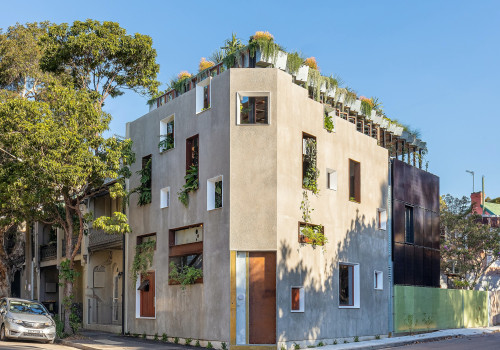As Pittsburgh embraces sustainable housing initiatives, the need for effective pest extermination becomes increasingly critical. While beneficial, introducing eco-friendly materials and energy-efficient designs simultaneously creates conditions that can attract various pests, posing significant threats to structural integrity and public health. Understanding the intricate relationship between sustainable living and pest management is essential for fostering resilient communities. However, the complexities of integrating these elements raise important questions about the best practices and strategies that can be employed to ensure a harmonious coexistence.
Importance Of Sustainable Housing
Sustainable housing is increasingly recognized as crucial in addressing environmental challenges and enhancing community resilience. This approach emphasizes using eco-friendly materials and energy efficiency to create living spaces that minimize ecological footprints while promoting the health and well-being of occupants.
The importance of sustainable housing lies in its potential to mitigate climate change by reducing greenhouse gas emissions. By utilizing eco-friendly materials, such as recycled steel, bamboo, and reclaimed wood, builders can significantly lessen the environmental impact associated with traditional construction practices. These materials reduce waste and contribute to healthier indoor environments, minimizing exposure to harmful chemicals commonly found in conventional building products.
Energy efficiency is another critical aspect of sustainable housing. Implementing energy-efficient designs like passive solar heating, high-performance insulation, and energy-efficient appliances allows homeowners to decrease their energy consumption and costs. This benefits the environment by reducing reliance on fossil fuels and enhances residents' economic stability, providing savings that can be redirected toward other community needs.
Moreover, sustainable housing fosters resilience in communities by promoting social equity and affordability. As urban populations grow, access to accessible and sustainable living options becomes paramount. By investing in sustainable housing initiatives, cities like Pittsburgh can create vibrant communities that thrive economically while protecting natural resources for future generations.
Common Pests In Pittsburgh
Pittsburgh residents often encounter a range of common pests that can disrupt homes and the local ecosystem. Bed bugs have become increasingly prevalent among these, often invading homes and causing significant discomfort and distress. Their resilience and rapid reproduction make effective extermination crucial for maintaining a pest-free environment.
Carpenter ants are another common nuisance in Pittsburgh. These pests can compromise the structural integrity of homes by tunneling through wood, leading to potential termite damage if left unchecked. Homeowners should prioritize regular inspections to identify and address any infestations promptly.
Silverfish control is also essential, as these pests thrive in damp, dark areas and can damage paper products and fabrics. Implementing moisture control measures and sealing entry points can help deter them from invading living spaces.
Rodent prevention is a critical concern in urban areas, where rats and mice can transmit diseases and cause damage to wiring and insulation. Effective wildlife removal strategies are necessary to mitigate these risks and ensure a safe home environment.
Mosquito management is vital for comfort and public health, as these pests can carry diseases like the West Nile virus. Homeowners should consider preventive measures such as eliminating standing water and employing environmentally friendly repellents.
Impact Of Pests On Structures
Pests in residential structures can lead to significant damage and financial loss if not managed effectively. Common pests such as termites, rodents, and carpenter ants pose a serious threat to the integrity of homes. Termites, for instance, are notorious for causing structural damage by feeding on wood and compromising beams and joists, which can lead to costly repairs. Rodents can damage insulation and wiring, creating structural concerns and potential fire hazards.
Moreover, the impact of pests extends beyond immediate structural issues. Infestations can weaken a building's framework, decreasing property value and increasing maintenance costs. Homeowners may face unexpected expenses related to pest damage, which often go unnoticed until significant harm has already occurred. This makes pest prevention critical for sustainable housing initiatives in Pittsburgh.
Effective pest management strategies are essential for maintaining the physical structure of homes and ensuring the longevity of sustainable housing efforts. Implementing preventative measures, such as sealing cracks, proper ventilation, and regular inspections, can significantly reduce the risk of infestations. By prioritizing pest prevention, homeowners can safeguard their investments, protect the structural integrity of their residences, and contribute to a healthier living environment. Ultimately, addressing the impact of pests on structures is a vital component of fostering sustainable housing solutions in the Pittsburgh area.
Health Risks Associated With Infestations
Numerous health risks are associated with pest infestations that can significantly affect the well-being of residents. The presence of pests such as rodents, cockroaches, and bedbugs can lead to various health implications, primarily due to the allergens and pathogens they introduce into living environments. For instance, cockroach droppings and saliva contain potent allergens that can exacerbate asthma and cause other respiratory issues, particularly in vulnerable populations such as children and the elderly.
Additionally, rodents can transmit diseases like hantavirus and leptospirosis through their droppings and urine, posing severe health risks for residents. The effects of infestation extend beyond mere discomfort; they can lead to serious illnesses that require medical intervention, increase healthcare costs, and impact the quality of life. Bedbug infestations, while not known to transmit diseases directly, can result in significant psychological distress and sleep deprivation due to persistent itching and anxiety about bites.
Moreover, the psychological impact of living in a pest-infested environment should not be underestimated. The stress and anxiety associated with infestations can lead to mental health challenges, including depression and heightened levels of stress. Consequently, effective pest extermination is not merely a matter of aesthetic concern; it is vital for preserving the health and well-being of residents in Pittsburgh's sustainable housing initiatives. Addressing these health risks through timely and efficient pest control measures is imperative to foster a safe and healthy living environment.
Sustainable Pest Control Methods
Addressing the health risks associated with pest infestations necessitates implementing sustainable pest control methods that prioritize both efficacy and environmental stewardship. A key component of these methods is the use of biological controls, which involve the introduction of natural predators or parasites to manage pest populations. This approach minimizes the reliance on chemical pesticides and promotes biodiversity, creating a healthier ecosystem within sustainable housing developments.
Habitat modification is another essential strategy in sustainable pest control. Property owners can significantly reduce the likelihood of outbreaks by altering the environment to make it less conducive to pest infestations. This may include improving drainage to prevent standing water, sealing entry points to deny pests access, and maintaining proper sanitation to eliminate food sources. Effective habitat modification addresses current infestations and serves as a long-term preventative measure.
Additionally, integrating cultural practices such as crop rotation and companion planting can further enhance the effectiveness of biological controls and habitat modification. These practices encourage natural pest suppression and promote a balanced ecosystem, ultimately leading to healthier living conditions.
Integrating Extermination With Eco-Friendly Practices
Incorporating eco-friendly practices into pest extermination efforts represents a crucial advancement in sustainable housing initiatives. The integration of pest management with environmentally responsible methods not only protects human health but also safeguards the ecosystem. By utilizing integrated solutions, pest control professionals can effectively manage infestations while minimizing the impact on surrounding flora and fauna.
Eco-friendly techniques, such as natural predators and biological controls, can significantly reduce reliance on chemical pesticides. For instance, introducing beneficial insects like ladybugs or lacewings can help control aphid populations without harming the environment. Furthermore, utilizing plant-based repellents and insecticides derived from natural sources, such as neem oil, can offer effective pest control while posing minimal risk to human health and non-target species.
Another key aspect of integrating eco-friendly practices into pest extermination is the emphasis on prevention. Employing strategies focusing on sealing entry points, improving sanitation, and reducing clutter can substantially diminish pest attraction and entry into homes. This proactive approach not only mitigates the immediate need for extermination but also fosters a long-term sustainable environment.
Choosing The Right Pest Extermination Services In Pittsburgh
Selecting the right pest extermination services in Pittsburgh requires careful consideration, especially in light of the growing emphasis on sustainable practices. Homeowners and property managers must evaluate pest control options that effectively address infestations and align with eco-friendly principles. This dual focus ensures that the chosen methods do not harm the environment or jeopardize the health of residents.
When assessing potential service providers, a rigorous service provider evaluation is essential. Begin by researching companies with a solid reputation for sustainable pest management. Look for certifications in eco-friendly practices and inquire about their methodologies. A reputable extermination service should be transparent about the products they use, opting for integrated pest management (IPM) strategies that prioritize minimal chemical use.
Additionally, consider the range of pest control options offered. Effective services should encompass preventative measures, ongoing monitoring, and responsive treatment plans tailored to specific pest issues. Engaging with local providers can also yield insights into regional pest challenges, ensuring that their solutions are relevant and effective.
Customer reviews and testimonials can further guide your decision-making process. Seek feedback on service reliability, effectiveness, and customer support, critical components of a successful pest management partnership. By prioritizing sustainability and conducting a thorough service provider evaluation, you can choose a pest extermination service in Pittsburgh that meets both your needs and those of the environment.
Future Of Pest Management In Sustainable Housing
As sustainable housing continues to gain traction, the future of pest management is poised to evolve significantly, integrating innovative strategies that prioritize environmental stewardship. The shift towards sustainable living demands pest management practices that address infestations effectively and align with ecological principles. This evolution will likely see a greater emphasis on integrated pest management (IPM) techniques, which combine multiple methods to control pests in an environmentally responsible manner.
One promising avenue is the increased use of biological controls, which harness natural predators or pathogens to manage pest populations. By relying on these organisms, pest management can minimize the reliance on chemical pesticides that may harm non-target species and disrupt local ecosystems. For instance, introducing ladybugs to control aphid populations in urban gardens can significantly reduce the need for synthetic chemicals.
Moreover, the future of pest management will likely incorporate advanced technologies such as smart traps and monitoring systems that provide real-time data on pest activity. These innovations enable property owners to take proactive measures, reducing the chances of severe infestations while minimizing interventions.
Contact A Reliable Pest Extermination Service In Pittsburgh
Sustainable housing in Pittsburgh is a major step toward a healthier, greener future — but it’s not immune to common challenges like pest infestations. In fact, without effective pest management, the integrity of eco-friendly materials and the overall health of these communities can be put at serious risk. Integrated, environmentally conscious pest extermination strategies are essential to protect not just individual homes, but the long-term success of Pittsburgh’s sustainable living initiatives.
By prioritizing safe, targeted pest control methods, we ensure that sustainable housing remains true to its mission: providing residents with a better quality of life and a smaller footprint. Whether you're a homeowner, a property manager, or part of a sustainable housing project, proactive pest control is a crucial piece of the puzzle.
Don’t wait for a small issue to become a major problem. Contact Boo's Bug Stoppers L.L.C. in Pittsburgh today and protect your sustainable home — and the environment — for years to come.



